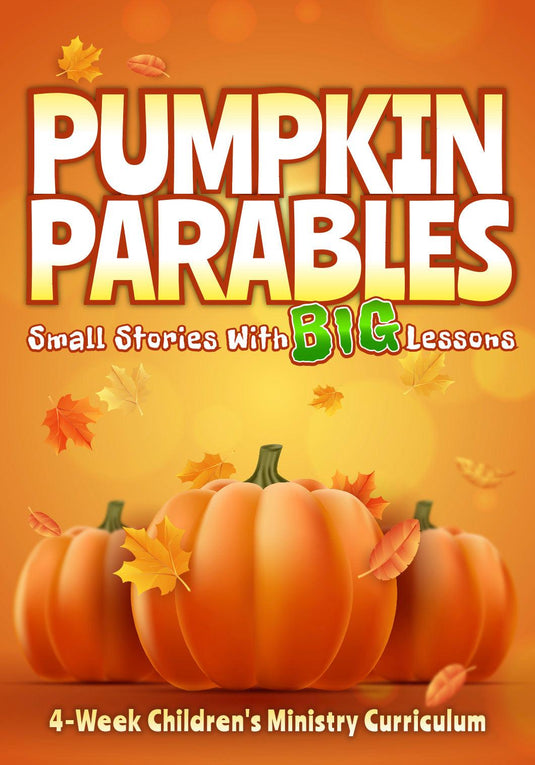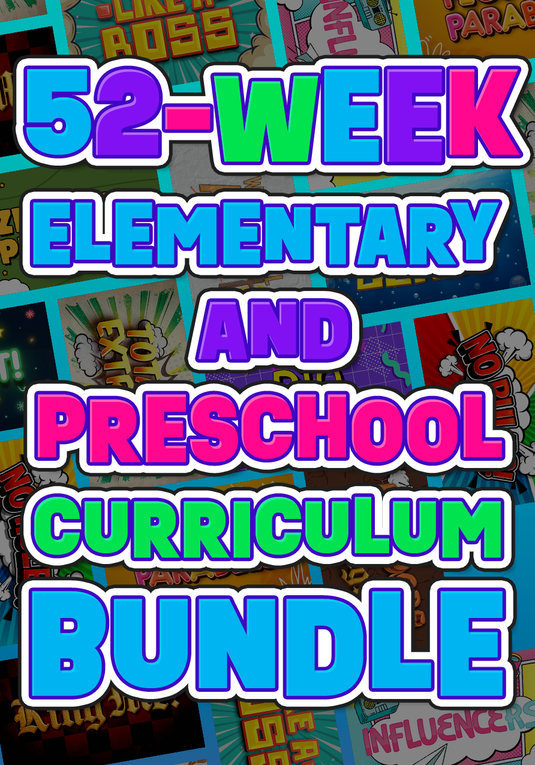Teaching children about God and His Word should begin as early as possible. You won't teach your youngest students the same way you would older youth or even preschoolers. Toddlers may be at a different level of learning, but they are students, nonetheless. The way you go about preparing a Sunday School lesson for toddlers needs to envelop their needs and learning style.
Do You Need a Sunday School Lesson for Toddlers?
Is having a lesson prepared for one and two-year-olds necessary? Shouldn't it be okay for children this age to only play in Sunday School while you babysit them? Let's address this topic first. When a parent entrusts a child of any age to you, there should be a couple of goals in mind. One is to keep them safe. The other is that you would help them to know and love Jesus better. That means teaching them at their level, not just watching them play with toys.
In the toddler stage, you have the excellent opportunity to be some of the very first seeds planted in children's lives. Toddlers need to know that they are safe with you. They also need to know that God keeps them safe. He does this by loving them and giving them people who love them.
Teaching little ones about God and His love should be as natural as playing blocks with them on the floor. And you can do both at the same time. Your environment should be one in which children want to come because of the people they will see, things they will get to do, and words their little ears will hear.
Keep It Simple, Keep It Structured
Whatever the teaching topic, keep it simple for your tiny tots. Whether you're teaching about creation, Noah, or baby Jesus, the entire Bible comes down to a story of God's love for people. In one and two-year-old terms, the bottom line is that God made and loves them.
It can be simple to incorporate toddler activities into your lesson. For example, put together an easy puzzle or stack building blocks while you repeat key phrases to them like, "God loves you so much!" At this age, children don't think a lot about others' needs, so tune into the fact that God is all about them. Each week, you should incorporate things like "God made you and me. He takes care of us." Teach these themes when you're teaching about any Bible story, such as Moses leading the Israelites or Jesus calming the storm.
Plan out your time and have a schedule. Kids need routine and will appreciate knowing what to expect. Your hour might look something like this: check-in, puzzles, and free play sit at the table for lesson and snack, diaper changes and potty time, clean up, read books. Most toddlers thrive on a schedule.
Repetition
If you've had a toddler yourself, you know that reading the same story over and over can be tiring. Playing peek a boo 20 times in a row can make you feel crazy! But remember, that's an adult's perspective. Repetition for a toddler is key. It's how they learn. Lessons don't have to have too many parts. If they do, your toddlers will most likely lose interest.
You should focus on activities that your class will enjoy. Songs, fingerplays, hiding, and finding something, and building are simple ideas of everyday toddler activities that you can easily do alongside teaching Bible stories.
Play that game five times if they remain interested. Keep the same story all month long. By the end, they can probably retell it. Say those keywords over and over, and remember not to do all the talking.
One and two-year-olds are hugely expanding their vocabulary. They are learning to talk, and they mostly learn by hearing and repeating what others say. There are probably some choice words that toddlers pick up, and you wish they wouldn't! Fill their minds with the things you want them to repeat. An example is by saying, "God made me. Can you say, 'God made me?' Then give them a chance to repeat you. You will have a wide variety of abilities, so praise them all.
Appeal To The Senses
A solid toddler lesson will appeal to their senses. Imagine a group of toddlers sitting at a table while the teacher tells a story, but that's it. Sitting and listening won't do it for these kiddos. They need to be a part of what's going on. Think about the five senses: seeing, hearing, touching, tasting, and smelling. Try to incorporate most of these into your Sunday School hour.
When you're telling the Bible story, children this age need a visual representation. Use a children's Bible with kid-friendly pictures or a curriculum that provides storytelling pictures for you. You want them to listen to the important words about God, so teach them to point to their listening ears and encourage them to hear God's good words.
Hands-on opportunities are a must. Kids need to feel and touch. If you're teaching about creation, pass around a stuffed animal that they can hug while you tell them that God made all the animals. Tasting and smelling activities may take a little more bravery on your part, but they will leave a lasting impression. A lesson on being kind can relate to the tongue using nice words. Have them explore the taste of sweet, sour, and salty. If you're doing an activity with playdoh, let them smell it. They're curious. Just keep that one away from the tasting sense!
Exploring with their senses is a way to keep little ones engaged. They learn more by doing.
Have Fun!
For goodness sake, don't be boring! Learning should be fun! Kids should come into your classroom with the expectation of feeling safe and enjoying themselves. It is unrealistic to plan an hour-long structured lesson for toddlers. Although teaching and learning should take place each week, children need time for free play.
Be sure to set up your classroom with age-appropriate toys and items. You might want to have free play for toddlers at the beginning while everyone is getting checked in and then again at the end after your lesson. Having a plan and structure for your Sunday School hour can make your time go more smoothly and teach even the youngest of students routine and help them know what to expect.
Passing It On To Parents
Two-year-olds won't necessarily go home and tell their parents what they learned, so you have to do it for them. This might be a handout or email giving highlights about that day or face to face communication at pick up. Keep it simple with the parents, just like you've done with the kids. It's never a bad idea to encourage parents to keep Bible learning going at home. Parents are, of course, their children's first and best teachers. Many times, they don't know how to be, so instruction and encouragement from a Sunday School teacher can be of great help to put them on the right track to building that relationship between church and home.
Conclusion
Toddlers are messy. They cry a lot. They change their minds every two seconds. You know this, so be prepared for it! Your toddler Sunday School class should be inviting. You should prepare for the kids with a repetitive lesson that gets to the point. Have activities ready to help teach the Bible point. Appeal to their senses and make it fun. Have a plan to make the most of your time while still allowing their little minds to play and be creative. And never underestimate what they can learn!
How long should a Sunday School lesson for toddlers be?
Not long! 1-5 minutes is a great length for the actual "teaching time". If you have props that the kids can hold and feel or ways to engage multiple senses that can allow to extend the teaching time. You can also reinforce the lesson in other ways throughout the rest of your time together. Ask kids as you play, "What was our Bible story about?"
What types of activities work best for toddlers in Sunday School?
Hands-on, messy, colorful, visual activities. Activities that allow them to engage their senses and physically participate rather than just listening.
What Bible stories are best for toddlers?
Stories that involve animals and focus on God's love, care and provision are best to help little one's begin to know that God's love them and they can trust Him.
Want to remember this page to use later? Save this article on Pinterest, just pin the photo below.










